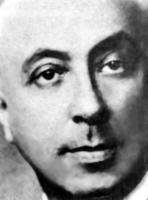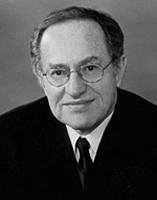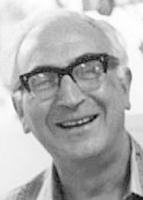|
The Why and Wherefore and
the Woe
From its origin the government of Israel balanced conflicting
objectives connected with the Jews of the USSR: trying both to
foster aliya and to retain good relations with the Soviets. But
after 1955, when Soviet policy shifted to embrace a pro-Arab
position, realpolitik dictated that political- relations with the
Soviets be its dominant objective.
A March 2, 1973 editorial in the Israeli newspaper Yediot
Achronot, by the editor Dr. Herzl Rozenblum (no relation to me),
describes the government’s opposition to effective struggle for
aliya from the USSR. Here is an excerpt:
|
“There is opposition
unspoken but strong and stubborn in the government to
everything that smells of an effective struggle for
emigration from the Soviet Union. This is known to
everyone who comes in contact with the government in
this vital matter.… Our newspaper editors have learned
this through their own experiences. Golda came to them a
little over two years ago and asked them ‘to lower their
tone’ in their publicizing of the small trickle of
immigrants from Russia, which began then.
… However, only a short time passed and it became
apparent that the Russian immigrants who arrived here
were of the opposite opinion, demanding from their own
personal knowledge of Russia “to raise the tone of
Israel's fight for the aliya of the rest of their
brothers. Another meeting was held with Golda to which,
this time, she brought as supporting authority [Shaul
Avigur], a friend, himself a Russian immigrant but from
the second aliya, who left Russia during the time of the
Tsars and knew only from reading what was happening now…
and this ‘expert’ said the following: “It does not
matter what the new olim say. What matters is that
publicity will endanger the present small trickle of
aliya.” And Golda’s opinion was the same as his, and
their opinion was acepted.
“But not by everybody. There were editors who revolted
against this silencing of voices…And they made it clear:
“We are not party to the agreement and we will write
whatever, in our opinion, is necessary.” Golda had this
to say: “You leave me no choice, my friends, but to
impose censorship on you.” And censorship was imposed on
us.” |
Censorship and more:
Click here to read the full
editorial.
The effects of Israel’s policy of propitiation were especially
devastating for certain refuseniks: those with connections to Soviet
dissidents, families of defectors, or persons imprisoned for
engaging in ‘illegal financial transactions.’ Such refuseniks were
deemed personae non gratae.
Anatoly Sharansky is a parade example. Alan Dershowitz,
professor of law at Harvard University and Sharansky’s attorney,
recalls:
|
“When Anatoly
Sharansky was arrested, Irving Cotler of Canada and I
were asked by Anatoly’s wife and mother to act on his
behalf. We initially went to Israel and interviewed some
people there who were involved in these events with
Sharansky. And we were told in Israel by the people in
the Prime Minister’s office dealing with Soviet Jewry to
stay away from the case, that Sharansky was not a Jewish
Zionist refusenik but instead a human rights activist
and that it would be embarrassing to the State of Israel
for people working on behalf of the State of Israel to
get involved in his case.” |
Click here to read the complete article
 |
 |
 |
|
Herzl Rozenblum |
Alan Dershowitz |
Michael Sherbourne |
In 1987 I interviewed my erudite, acerbic friend
Michael Sherbourne
on the restraint of the Soviet Jewry movement by the government of
Israel. Near the end of our discussion he commented about the fate
of the shunned refuseniks:
|
“It comes down to they
decide, they know best, who is and who is not a genuine,
what they call, “Prisoner of Zion.”
Gluzman, for example, they don’t recognize him.
There is a man named Kagan, whose family is in Israel
and who begged us to do something for him. His father is
a musician and composer in Leningrad and made quite a
bit of money. When they left, he, another son, and his
wife and I think a daughter, they couldn’t take money
out with them. So they left a large sum of money with a
son they left back there, Lazar. The family had no
sooner gone than Lazar was arrested and charged with
embezzlement and given a 12-year sentence and he’s
serving it now.
There is a Dr. David Blatnoi, from Alma Alta whose
family is in Israel and they begged us to do something
for him. He was arrested on the false charge of bribery.
They showed us the law, which says if a doctor is given
gifts after he has completed his treatment, that it is
not to be considered bribes in any way. I’ve seen that
law myself; they sent me photocopies of it. But the
Israelis don’t want to know. He’s doing a ten-year
sentence ..…
There are very many like that.
Ida Nudel used to spit blood on the telephone
talking to me about this, because she would find out all
sorts of such cases and the Israelis just did not want
to know.” |
To read the entire interview,
click here.
next > In
Contrast: An American Strategy |


